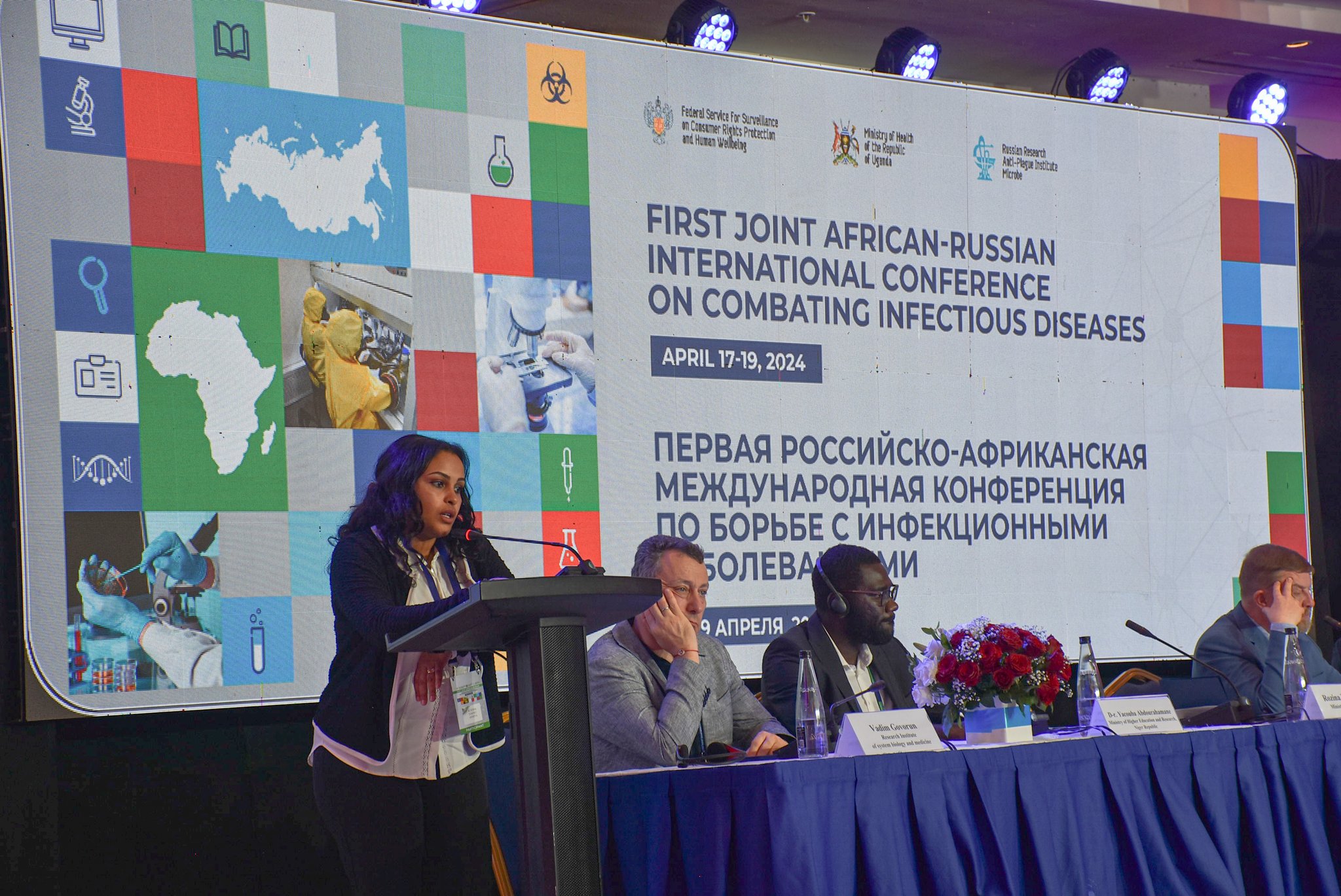The first Russian-African International Conference on Combatting Infectious Diseases opened on Wednesday in Uganda, marking a significant collaborative effort aimed at addressing the escalating challenges of infectious diseases across the continent.
Russian President Vladimir Putin extended a warm message of greetings to the participants, organizers, and guests involved in this groundbreaking event.
The conference, held in the Ugandan capital, Kampala, draws together government representatives, medical experts, epidemiologists, and microbiologists from 20 countries, highlighting a robust international partnership. The gathering is seen as a crucial step in fostering dialogue and sharing vital knowledge and strategies to combat infectious diseases that pose a significant risk, particularly to vulnerable populations in Africa.

Ms Rozina Tariku, the Director for Diseases Surveillance and Response, Public Health Emergency Management, EPHI, at the Ministry of Health Ethiopia (Photo by UG Diplomat)
In his message, President Putin emphasized the importance of the conference, stating, “This representative event is building upon the initiatives put forward at the second Russia–Africa Summit held in St Petersburg last year.” He further noted the persistent high risk of new epidemics and the need for enhanced medical, scientific, and technological capabilities to safeguard public health.
The conference is organised under the auspices of Uganda’s Ministry of Health. On Wednesday, the Permanent Secretary Dr Diana Atwine and Director General Henry Mwebesa, attended the summit.
In her remarks, Dr Atwine said she hoped the summit would mark the beginning increased cooperation with Moscow in the field of health.
Russia has expressed its readiness for active cooperation by launching a program in 2023 to assist African nations in improving their sanitary and epidemiological well-being. This initiative includes the delivery of 10 mobile high-containment biological laboratories, the training of over 350 African specialists, and conducting joint scientific research to tackle infectious disease threats effectively.
The conference aims to provide a platform for participants to exchange professional insights and experiences in preventing and managing outbreaks. Such collaborative efforts are essential in building a resilient healthcare infrastructure capable of responding to both current and future health challenges.